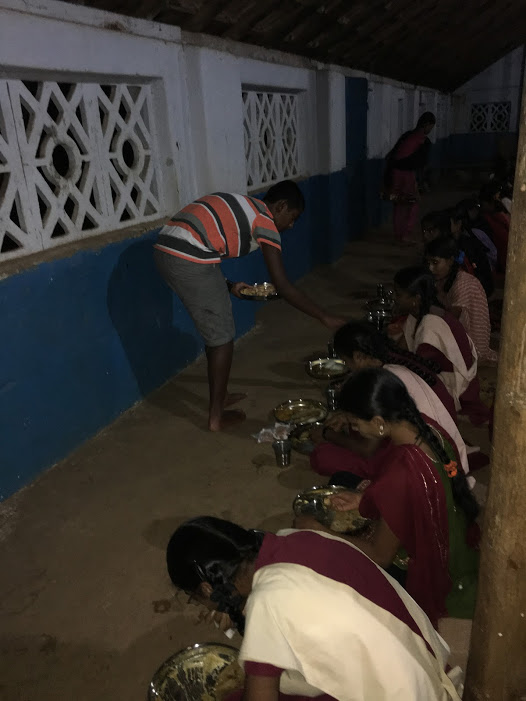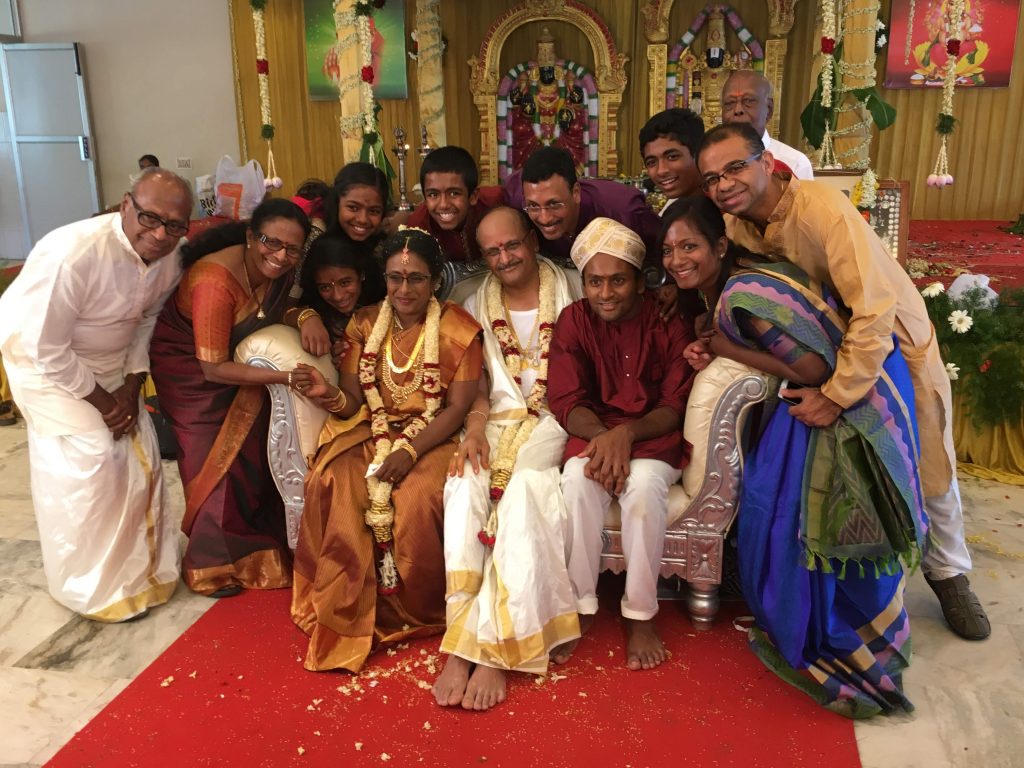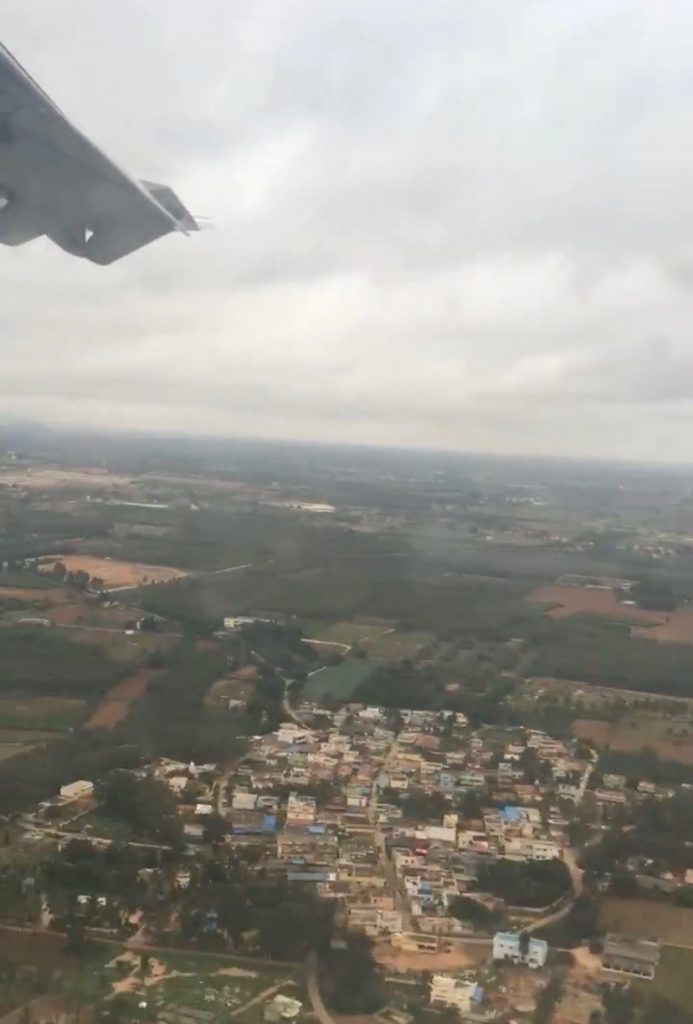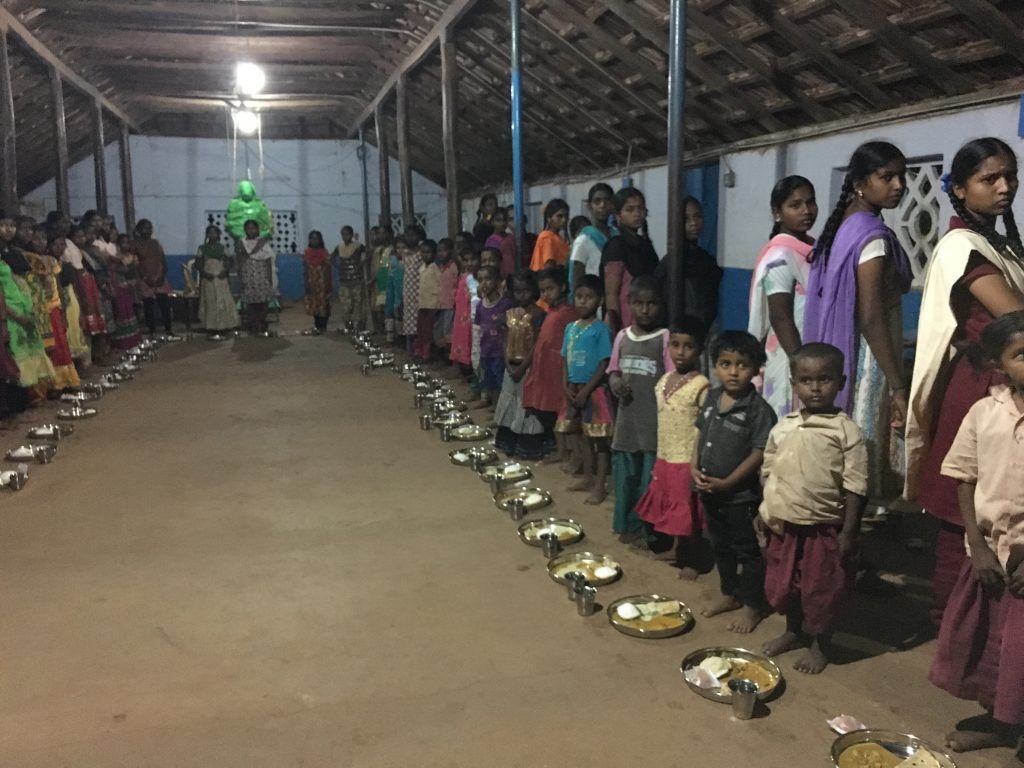
As the plane descended, I peered out my window toward Chennai and witnessed a stark contrast. Surrounding gleaming skyscrapers and glimmering hotels were slums that stretched out from the city center. This was my second time in India, but I was still awestruck at the contrast in living conditions.
After touchdown, my family and I were whisked away by our anxious and accommodating relatives to see the finer parts of Chennai – the well-endowed museums, pristine beaches, and magnificent malls. After being treated like royalty in cosmopolitan Chennai, I witnessed the novelty of an Indian wedding. Its intricate preparations overflowed with opulence and graciousness, and I couldn’t help but wonder whether Duchess Meghan Markle and Prince Harry might even be jealous.
After these new adventures and celebrity service, we went on to visit my mother’s ancestral village off the beaten path. As we entered Gobichettipalayam, Tamil Nadu, I quickly realized that the village was inhabited by only a few different large families. Our hotel, Vasu Palace, was more along the lines of “The Best Exotic Marigold Hotel” than a majestic castle. In the morning, when I entered the shower, I had to time it perfectly – one second too long and the low-pressure cold water would make me feel like I was in the frigid waters of Antarctica. But before long, I got acclimated to the small village life.
The largest contrast to my American life was when I visited Harijan Sevak Sangh, an orphanage in Gobichettipalayam. As I entered, I saw dozens of children looking at me like deer in headlights. I barely knew Tamil, so the only thing I could say was “un peyar enna,” or “what is your name?” My grandparents were fluent, though, and with their help, we were able to converse and play with the children.
My family was sponsoring dinner that night for the orphanage, so I helped to serve different Indian delicacies from idli and sambar to rice and curries. Seeing the children light up as we provided them full meals filled me with joy. One child gave a short speech thanking us for coming. As my grandfather translated his words, I felt a pang of guilt. I watched the headmaster admonish the children to thank us for our service, but what had we really done? Here were dozens of children, some near my age, who were overjoyed for an experience that was commonplace for me. Yet they valued both our time and our gifts with incredible appreciation. While I appeared so similar to these kids, I lived in a completely different world. I wanted for nothing and, instead, received everything. And it wasn’t just them; the scene I had witnessed from the airplane window was a constant reminder that the same dichotomy was playing out across India.
India is a country of contrasts. On the one hand, it houses some of the world’s most prominent billionaires. On the other, there are millions of impoverished, deserving children who have no voice or advocacy. Since my visit, I’ve contemplated this reality, and come to the conclusion that I could either seek to amass a fortune as great as Mukesh Ambani, or I could use my ability to travel to shed light on important causes throughout the world. Therefore, I have tried not only to visit tourist attractions during my travels, but I have also tried to highlight the social, political, and economic conditions of the country. I ultimately hope to encourage social tourism so that my readers not only enjoy their vacations, but also contribute to the countries they visit in meaningful ways.
Dear Reader: This page may contain affiliate links which may earn a commission if you click through and make a purchase. Our independent journalism is not influenced by any advertiser or commercial initiative unless it is clearly marked as sponsored content. As travel products change, please be sure to reconfirm all details and stay up to date with current events to ensure a safe and successful trip.


